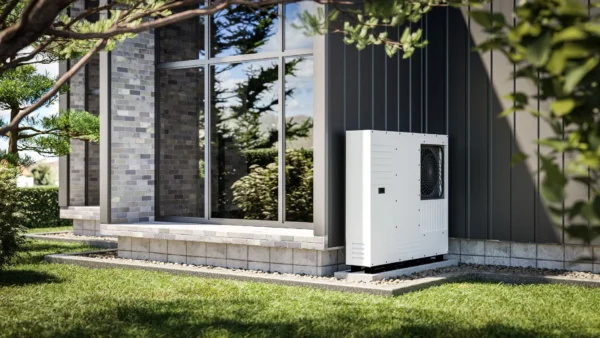
Leveraging Air Source Heat Pump Grants for Comprehensive Home Energy Upgrades
Air source heat pumps (ASHPs) have emerged as a powerful tool in the quest for energy efficiency in homes like yours. By drawing in outside air to heat and cool your living spaces, these systems offer a greener alternative to traditional heating methods, potentially cutting your carbon footprint and your utility bills.
A big bonus is that there are grants available for ASHPs to help you get started. Let’s dive into how you can benefit from this financial assistance.

Understanding Air Source Heat Pump Grants
Grants for air source heat pumps can provide substantial financial assistance to upgrade your home heating system and improve energy efficiency. These funds can help make the transition to more sustainable energy use both affordable and attainable for homeowners.
Types of Grants Available
- Federal Grants: These might include tax credits or rebates directly from government initiatives aimed at encouraging renewable energy adoption.
- State and Local Grants: Often vary by region, offering different levels of support, sometimes more generous than federal programs.
- Utility Company Incentives: Many utility providers offer rebates and incentives for customers adopting energy-efficient technology.
Eligibility Criteria
- Ownership: You must typically own the property where the heat pump will be installed.
- Location: Some grants are only available in certain areas or climates.
- Income Level: Certain grants are aimed at low to moderate-income households.
- System Requirements: Grants may specify the type of air source heat pump and its efficiency rating.
Application Process
- Research: Find air source heat pump grants for which you are potentially eligible.
- Documentation: Gather necessary paperwork, such as proof of ownership and income verification.
- Submission: Complete applications, often available online, along with required documentation before deadlines.
- Follow-Up: Stay in contact with the grant provider to address any additional requirements or questions.
Calculating Potential Savings
- Initial Costs vs. Rebates: Subtract available grant amounts from the initial cost of installation to estimate your upfront investment.
- Energy Savings: Calculate your current energy expenditure compared to the estimated output of the new pump to determine annual savings.
Integrating Heat Pumps into Home Energy Upgrades
When considering energy upgrades for your home, integrating an air source heat pump can be a game-changer in terms of both efficiency and cost-effectiveness.
Assessing Home Energy Needs
Before installing an air source heat pump, evaluate your home’s current energy consumption. Identify areas where heat loss is significant, such as poorly insulated walls or outdated windows. This assessment will inform you about the capacity of the heat pump needed to effectively heat and cool your home.
A good way to do this is by reviewing previous energy bills for patterns or to conduct an energy audit to pinpoint inefficiencies.
Combining with Other Energy Improvements
Pairing a heat pump with additional home energy improvements can yield optimal results. Insulation upgrades, for instance, work synergistically with heat pumps to reduce overall energy consumption.
- Install energy-efficient windows and doors.
- Add insulation to walls, attics, and basements.
Consider exploring government air source heat pump grants to support the costs associated with these upgrades. Optimal integration involves a careful balance of various energy systems to maximise your home’s sustainability and comfort.
Maintenance and Long-Term Considerations
Regular maintenance is crucial to ensure the longevity and performance of your heat pump. Establish a routine that includes:
- Checking and cleaning filters.
- Inspecting outdoor units for debris or blockages.
Long-term, be aware of the potential need for part replacements or system upgrades. Account for these in your financial planning to avoid unexpected costs down the line. Investments in high-quality equipment can pay off in prolonging the life of your system. For optimal performance and energy efficiency, regular pump maintenance services are essential to ensure your heat pump operates smoothly throughout its lifespan.
An energy efficiency evaluation is an important step in identifying any issues that may be causing your system to work harder than necessary, ultimately leading to higher energy bills. Companies like Flexachem offer comprehensive pump inspection services, which include evaluating the efficiency of your system and identifying potential areas for improvement. Through their detailed assessments, they can pinpoint issues such as worn-out parts, air leaks, or poor airflow, all of which could be reducing your pump’s efficiency.
Their team not only inspects your pump but also provides practical solutions to enhance its performance, whether it’s replacing outdated components or recommending energy-saving upgrades. By investing in regular maintenance and inspections, you can ensure that your system operates at peak efficiency, reducing energy costs and extending the life of your pump.
Just like your heat pump, your plumbing system requires regular attention to maintain optimal performance and prevent costly repairs. Start with routine inspections for leaks in pipes, faucets, and fixtures, as even a small drip can lead to significant water loss over time. Additionally, check for signs of corrosion or mineral buildup, especially in older systems. Performing these checks can help you identify potential issues before they escalate, ensuring your plumbing operates efficiently and effectively.
When considering maintenance and repairs, it’s wise to partner with a reputable service provider like sveagle plumbing. Their expertise can be invaluable in diagnosing problems and recommending appropriate solutions tailored to your system. Regular servicing can not only extend the lifespan of your plumbing infrastructure but also enhance water quality and reduce utility bills. By planning ahead and investing in professional maintenance, you can safeguard your home from unexpected plumbing emergencies and maintain peace of mind.
Conclusion
The availability of grants for ASHPs marks a significant opportunity to reduce both environmental impact and energy costs. By leveraging these financial aids, homeowners can overcome the initial barriers to adopting this greener technology. Federal, state, and local grants, alongside utility company incentives, provide a broad spectrum of financial support to cater to diverse needs and circumstances.
Ultimately, air source heat pump grants offer a pathway towards a more energy-efficient and sustainable home, aligning financial savings with environmental stewardship.












































